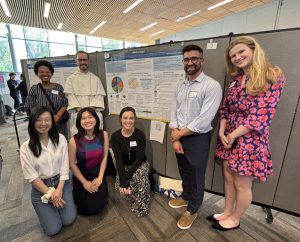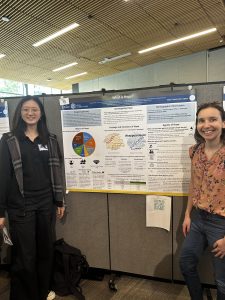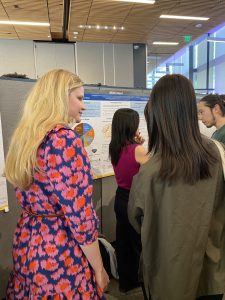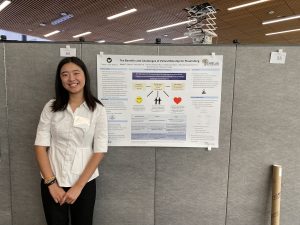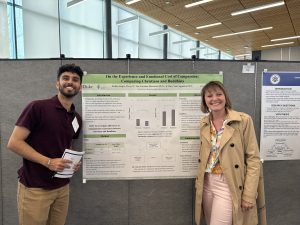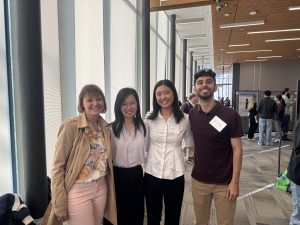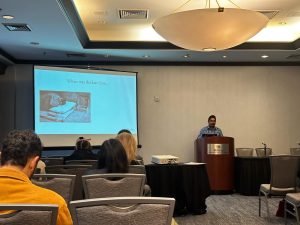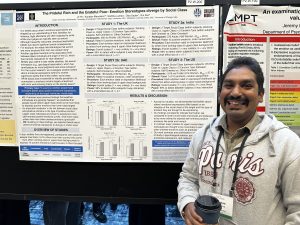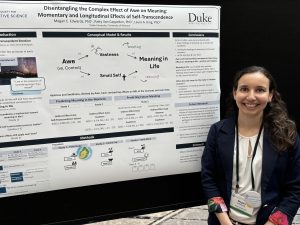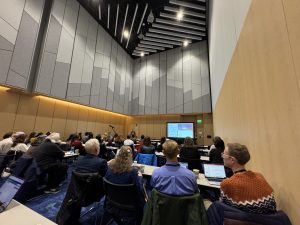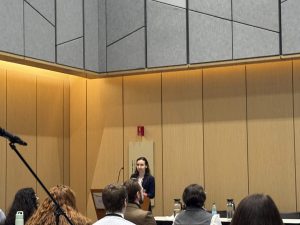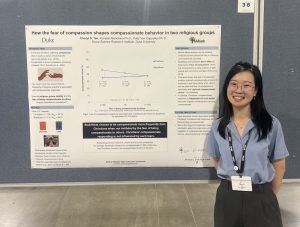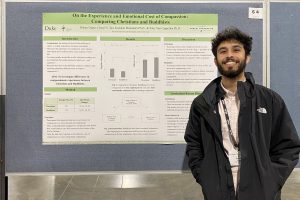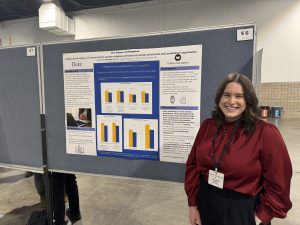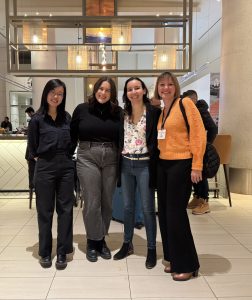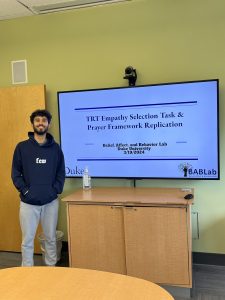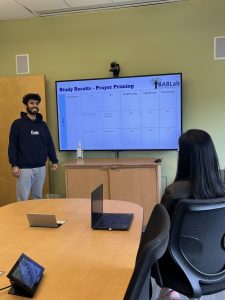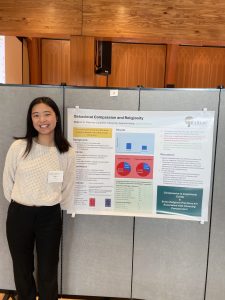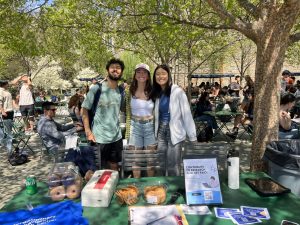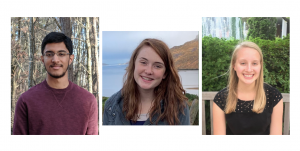Please join us at the 2020 Society for Personality and Social Psychology Convention in New Orleans, LA. BAB Lab will be presenting five posters at the Convention and the Psychology of Religion and Spirituality Preconference. Here are the contents and times of our presentations:
SPSP Convention (Friday, Feb 28 and Saturday, Feb 29)
Friday, Feb 28, 1:30-2:30pm
Shaken to the core: A naturalistic study of awe’s effects on values, meaning, and religiosity.
Edwards, M. E., Perlin J. D., & Van Cappellen, P.
Saturday, Feb 29, 9:15 – 10:15am
Shades of expansiveness: Full-body expressions of joy, awe, hope, and dominance.
Van Cappellen, P., Edwards, M., & Shiota, M.
Religion and Spirituality Preconference (Thursday, Feb 27, 8:00am – 4:30pm)
Prayer postures associations with religious experience among Muslims, Christians, and Hindus.
Edwards, M. E., & Van Cappellen, P.
Examining the religious functions of awe through group cohesion and self-sacrifice.
Naclerio, M. & Van Cappellen, P.
The interdependence between prayer posture and religious mindset.
Zhang, R., & Van Cappellen, P.

